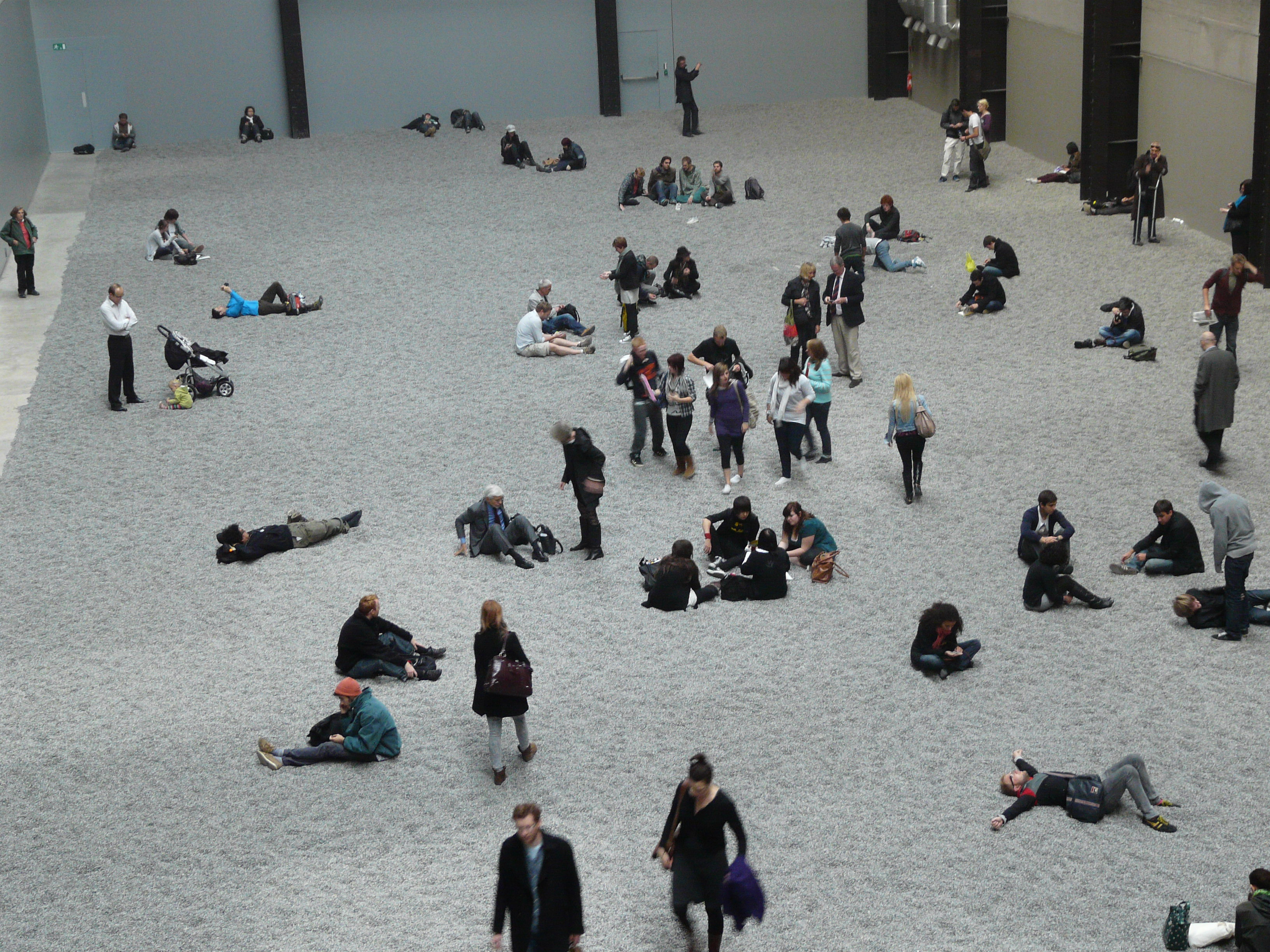 |
| The Bird's Nest, Beijing National Stadium (2008), for which Ai Weiwei was the artistic consultant. |
For those who know little of Ai's artistic life and contribution, a good place to start is this fascinating and powerful documentary of his work during the last few years. With depth and sensitivity, the filmmaker has brought us into his world of creativity, philosophy and social conscience.
The film begins with a powerful metaphor. In his studio lives many cats and dogs. But only one cat, says Ai, has learned to open the door. ... and the problem is, it has not learned to close it. As I left the theatre, I realized how deeply that applies.
A significant part of the film details Ai's fascination with antiques (like his dissident father before him who was imprisoned during Chairman Mao's attempt to destroy the past to create a new China). One work of his has painted a Hun Dynasty urn with the Coca Cola logo. Others have modern glazes. In one set of pictures, he drops a valuable antique urn and destroys it. His willingness to find art in the process of creation/destruction is similar to what he seems to want for Chinese society.
During one of the interviews for the documentary, the interviewer asks if they can interview his mother. He refuses but instead proposes that they select any woman to play his mother and let her say anything. He laughed that it would be one of his artworks.
In 2008, in response to the Sichuan earthquake, Ai became involved in gathering names of students who had died. The list grew to 5,385, but the Chinese government set out to silence Ai's work at publicizing the names. In 2009, while on a trip to testify on behalf of Tan Zuoren, another investigator of the earthquake, Ai was attacked by the police in his hotel room. After suffering internal bleeding and an operation and hospital stay, Ai set out sue the government and policemen involved. [Ai spent several years living in New York City and he says that once a person tastes of freedom, they can't return.]
Ai's method of attack was through his blog and publishing photographs. When the government shut that avenue down, Ai began using Twitter.
 |
| Sunflower Seeds by Ai Weiwei at the Tate Modern Turbine Hall. |
That same year, the government moved to silence Ai by announcing the pending destruction of his newly built studio in Shanghai. Ai immediately tweeted that they would hold a celebration dinner. He was put under house arrest so he could not attend, but hundreds of his followers went ahead with the dinner, publishing photos of the experience. Two months later, the studio was demolished.
After his disappearance in April 2011, no one had news of his well-being or whereabouts for 81 days. Then in June 2011, a visibly shaken and cowed Ai reappeared and the film talks about how his work still continues. The government's attack on Ai has been for tax evasion and they have labeled him a "deviant and a plagiarist."
In The Dark Knight Rises, Batman says, "A hero can be anyone. Even a man doing something as simple and reassuring as putting a coat around a little boy's shoulders to let him know that the world hadn't ended."
Ai Weiwei shows us what it means to be a true hero and how that costs the individual.
Ai Weiwei: Never Sorry (2012) *****

No comments:
Post a Comment